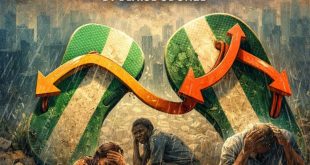
NNPC GMD, Mele Kyari
The NNPC also stated that cargoes of clean petrol are being shipped into the country daily to bridge the gap created by the withdrawal of the methanol blended petrol.
The four companies that supplied the methanol blended petrol are MRS which made the importation through a vessel named MT Bow Pioneer, Emadeb/Hyde/AY Maikifi/Brittania-U Consortium through vessel identified as MT Tom Hilde, Oando through a vessel named MT Elka Apollon, and Duke Oil through MT Nord Gainer vessel.
The product was purchased from International trader, LITASCO and loaded through the LITASCO loading port in Antwerp, Belgium.
This newspaper had reported that immediately the discovery was made, the NNPC quickly stopped oil marketers from distributing the petrol.
The NNPC intervened by ensuring that the methanol blended petrol do not get to the filling stations.
In achieving this, the NNPC made sure that all the cargoes that were suspected to have methanol were quarantined.
Similarly, those cargoes that have been discharged were also quarantined, while all the trucks that have left the depots were tracked and intercepted.
The NNPC also restocked the depot with more cleaner fuels and has also sent officials to inspect all the filling stations to ensure that do not have the petrol that have excessive methanol.
In addition, the NNPC also intensified efforts at increasing the supply of petrol into the market in order to bridge any unforeseen supply gap
Stakeholders had hailed the NNPC’s intervention in stopping the circulation of the methanol blended petrol within the country.
For instance, a former Lagos State Commissioner for Transportation, Dr Kayode Opeifa, said the action taken by the NNPC in mitigating the potential crisis that would have been caused if the entire contaminated fuel had entered the Nigerian market was timely.
He said, “This is what you would expect in this kind of situation.You quarantine the quantity, withdraw those in circulation and then begin investigation and that is the stage that I believe that we should be concerned with so that we don’t have damages beyond what we ‘ve had.
“To that effect, as someone in the transport sector with analytical chemistry background, I think so far for the public, that is adequate. The product is withdrawn.
“We need to be procedural in handling this matter. Vehicles are damaged but it’s not a matter that should be handled based on emotions. We need to get answers to how it happened.
“We have regulatory agencies and they have done the needful in terms of isolation, quarantine and restock.
“For the general public,what is important is that the product is no longer in the market
“Different countries have different specs but there is a minimum standard and that minimum standard is what NNPC is saying that this particular fuels fail to meet.
“It is not unusual to miss the specs on chemical analysis. It is not unusual to have product defects.You have heard of car recalls, air bag recalls when they have gotten to the market. So, the best thing is to ensure that appropriate protocols are used to address this issue.
“What I think is the good news out of this whole thing that happened is that it was detected early enough, it was withdrawn within limited time and the fuel supply chain is gradually coming back to normal.”
 DailyrecordNg …Nigeria's hottest news blog
DailyrecordNg …Nigeria's hottest news blog








